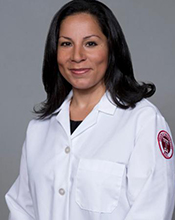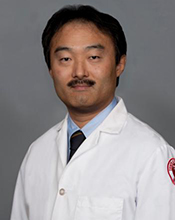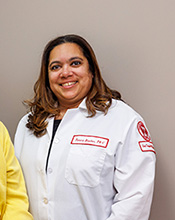Ventricular assist devices (VADs) are mechanisms that help the heart pump enough blood, enabling patients with end-stage heart failure to live longer and feel better. Unlike artificial hearts, VADs are meant to powerfully assist the heart rather than replace it. A VAD can be implanted as a “destination therapy,” meaning the device is permanently in patients who are ineligible to receive a transplant. A VAD can also be implanted as a “bridge-to-transplant therapy,” in patients who are awaiting transplant or whose hearts are likely to regain their own strength with treatment.
There are a variety of VADs, also called mechanical heart pumps or circulatory assist devices. Some of them duplicate the pulsing pump of the ventricles—the heart’s lower chambers—and others pump blood continuously through a rotary tube. Patients with continuous blood flow VADs may not have a normal pulse even though they are receiving enough blood.
VADs consist of two tubes: one carries blood out of the heart and into a pump, and the other moves blood from the pump to the body’s major blood vessels. A power source connected to a control unit monitors the device’s functioning.
VADs can assist either the left ventricle (LVAD), the right ventricle (RVAD), or both (BIVAD). LVADs are the most common, helping supply oxygen-rich blood to the aorta, the body’s primary artery. RVADs help pump blood to the lungs. BIVADs may be used when the functioning of both ventricles is impaired.
For temporary support during or after surgery, a transcutaneous VAD may be used, wherein the pump and power source are stored outside the body and connected via abdominal tubes. Implantable VADs are a long-term or permanent solution wherein the internal pump is connected to the external power source via an abdominal cable.
Learn more about this device and VAD surgery by reading our ventricular assist device FAQs.





